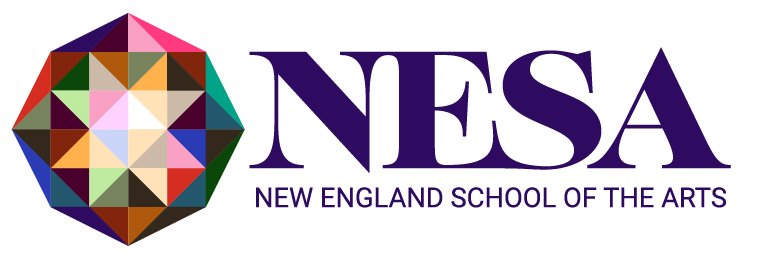Educational Approach
COMMUNITY BASED
By partnering with local organizations, NESA students have access to internships, community service opportunities and performance experiences to apply learning beyond the classroom.
COLLABORATIVE
NESA students work together to think outside the box and solve complex problems. Rather than competing, students support each other's academic, artistic, and character development.
INTEGRATED CURRICULUM
Our project-based learning model ensures content areas work collaboratively, in contrast to the traditionally siloed educational model. At NESA, curious and creative students connect learning across disciplines.
Areas of Focus
-
Music plays a unique and important role in the lives of students. Through the act of performing, composing, listening to, and analyzing music, students are given the opportunity to have aesthetic experiences and express emotions in verbal and nonverbal ways. This in turn helps students to understand their own emotions and the emotions of other human beings.
A diverse and varied repertoire of music guides students to understand the past and present history of specific cultures, and to draw meaningful connections to their own lives. Music is also a unique tool that allows students to connect deeply with other subjects. Through the study of music students can grow and develop their ability to problem-solve, gain discipline, develop creativity, and look at situations from many different perspectives. A strong music program provides students with diverse meaningful opportunities to foster a life-long love of learning.
-
Theatre is life, and, not in a dramatic way such as “the theatre is my life.” Without being able to grasp the foundation of real human emotions and experiences and creativity, theatre does not exist. Every human benefits from theatrical training. Theatrical instruction improves life skills such as speech, emotional expression, relationships, and recognizing one’s personal creativity. Students realize themselves by laughing, relating to others, and finding their voice through simple theatre games.
Performance theatre has deep roots in history; beginning with the art of storytelling and morphing into what we know and love as live theatre today. Students grow through understanding three major aspects of theatre. The history of theatre gives students a better respect for its origins; working with different styles of theatre (such as Greek performance) gives students the feelings of the history in their bodies; all of this is wrapped up in a strong focus of the Stanislavski System with flavors of Meisner in training. Students should be provided with access to various different acting styles- even if they feel they are uncomfortable or “crazy”. Experimenting is how we grow and learn what works for us as an individual person, and, in turn, a performer.
-
The visual arts have a special role in supporting NESA’s STEAM-based curriculum. Choosing to enroll in an arts-focused institution is an important, potentially life – changing decision – one that can lead to learning how to use visual tools to be become a strong communicator and leader. At NESA we believe that introducing the serious study of visual arts to the innovative learner will help develop a specialized skill set important in solving the problems of today’s world.
Students in NESA’s visual arts courses will explore complex problems and respond by thinking strategically, communicating clearly, and building on basic skills to create, understand and critique unique visual solutions. Our instructors concentrate on helping students acquire a hands-on understanding of the components of visual literacy including two-dimensional composition, color, line, shape, value and typography - skills necessary to gain fluency in the visual world.
-
Dance is experiential. The physical and emotional frequency of a body in motion challenges, encourages, and inspires creativity. This challenges the body to push beyond its ‘comfort zone,’ motivates risk-taking in a safe learning environment, and inspires fearless, passionate creativity.
At NESA, we create a laboratory, experiential learning encounter that nurtures student growth for personal excellence and artistic integrity with joy!
-
With its STEAM (Science, Technology, Engineering, ARTS, and Mathematics) centered education, NESA emphasizes blending each student’s creative passion with their analytic and logical skills. Master teachers guide creativity and connectivity across all subject areas, teaching students to think critically and holistically, leading them to solve problems with imagination and agility.
Sample Course Offerings
-

Native American Heritage of Lebanon
Research the Abenaki people, known as Alnôbak in their Wôbanakiak language, and the history of the area now known as Lebanon, New Hampshire.
Immerse yourself in the “Abenaki Arts, Heritage, & Culture Art Show” at Stone Valley Arts. Learn the traditional craft of basket weaving from local Abenaki artist Denise Pouillot.
Study the Abenaki counting system in math and applying this system while cooking a traditional Abenaki meal in science class.
-

History of the Titanic
Audition for and perform the musical The Titanic.
Construct a prototype of the titanic ship before and after it sank to demonstrate the design’s structural flaws.
Prepare one of the meals served aboard the Titanic and enjoy the meal using proper social etiquette and manners appropriate to the era of 1912.
In PE class, learn how to play Cricket (a popular sport in 1912) and participate in a Staff vs Students cricket match!
-

Innovations of the Renaissance
Become immersed in the European Renaissance by studying Leonardo Da Vinci’s advancements in art and science. Construct and present a working model of one of his machines and its relevance to contemporary times.
In music, Study the works and style of Josquin des Prez and perform a recital of his motets and duets.
In dance, learn traditional Renaissance choreography to Josquin de Prez’s La Spagna to perform in the culminating recital.
